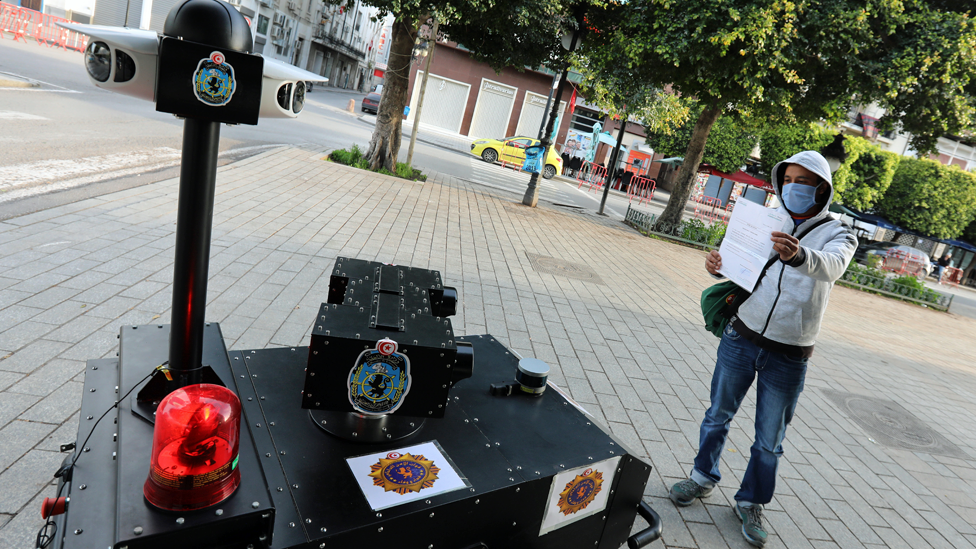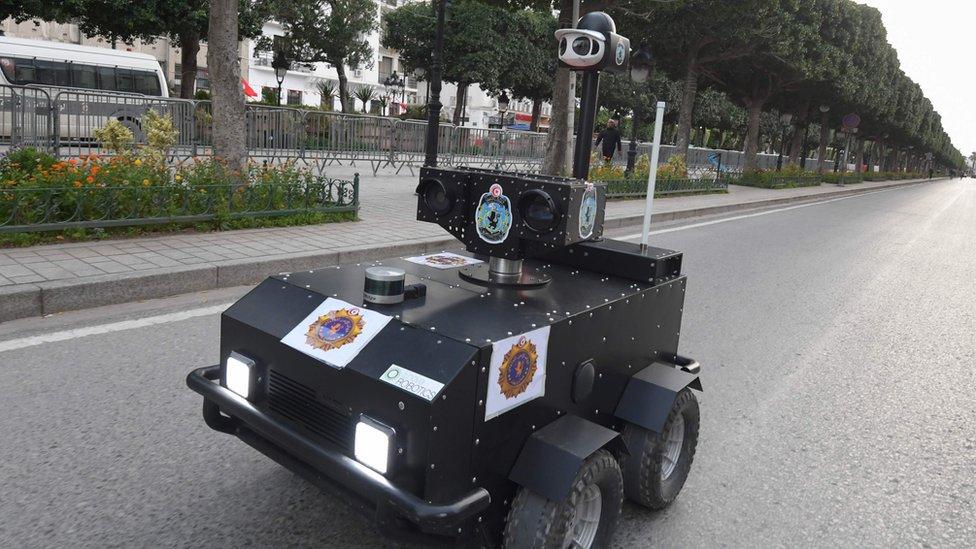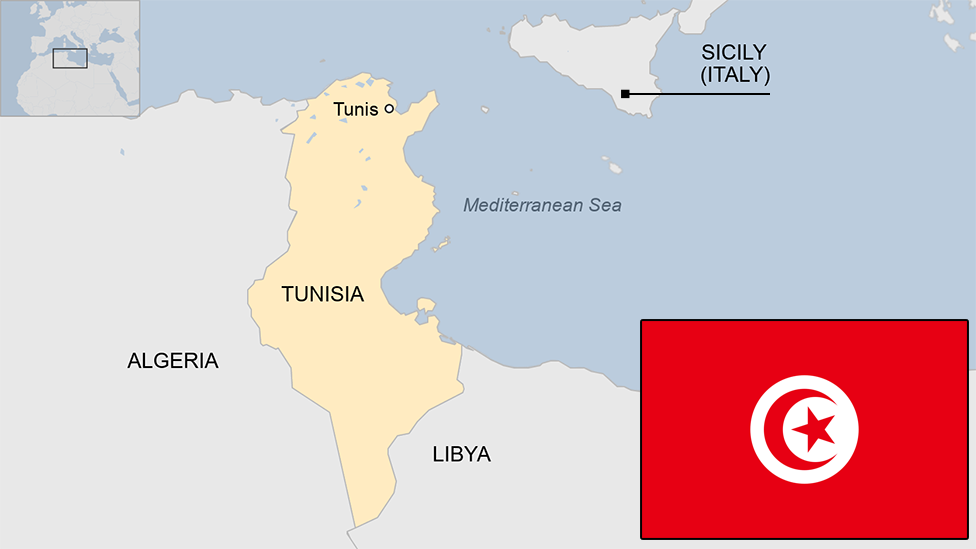Coronavirus: Tunisia deploys police robot on lockdown patrol
- Published

The robot questions people it sees out on the streets
A police robot has been deployed to patrol areas of Tunisia's capital, Tunis, to ensure that people are observing a coronavirus lockdown.
If it spies anyone walking in the largely deserted streets, it approaches them and asks why they are out.
They must then show their ID and other papers to the robot's camera, so officers controlling it can check them.
This is the second week of a nationwide lockdown to contain the virus, which has killed 14 people.
Everyone must stay in their homes, but people are allowed out for medical reasons or to purchase necessities.
The North African nation currently has 436 people being treated for Covid-19, the respiratory illness caused by coronavirus.
How does the robot work?
It is not clear how many of the Tunisian-built surveillance robots, called PGuards, have been deployed by the interior ministry.

The remote-controlled robot has a thermal-imaging camera and uses Lidar technology
The manufacturer, Enova Robotics, told the BBC it was a confidential matter. It also refused to reveal the price tag.
A four-wheeled PGuard has a thermal-imaging camera and Lidar (light detection and ranging) technology, which works like radar but uses light instead of radio waves.
The interior ministry posted a video on Facebook about its futuristic mission to impose the restrictions not long after the lockdown started.

Some welcomed the move, while others said the robot "moved too slowly" to be effective.
But several videos have since appeared on social media showing people being stopped by a PGuard. In one a man, who is asked if he knows there is an ongoing lockdown, explains that he wants to buy cigarettes.
The robot replies: "OK buy your tobacco, but be quick and go home."
Allow X content?
This article contains content provided by X. We ask for your permission before anything is loaded, as they may be using cookies and other technologies. You may want to read X’s cookie policy, external and privacy policy, external before accepting. To view this content choose ‘accept and continue’.

Before coronavirus swept the world, Enova's clients were largely private firms, its chief sales officer Radouhane Ben Farhat told me.
The firm, which has its headquarters in the coastal city of Sousse, also produces a "healthcare" robot, he said.
It can give a preliminary visual diagnosis and use its sensors to measure certain things - and one will be soon be working at a hospital in Tunis.
This would help minimise physical contact between medics and patients with Covid-19, Mr Farhat said.
Robotic technology and artificial intelligence (AI) are increasingly being used during these exceptional times as has been seen in China, which has used disinfecting robots and thermal camera-equipped drones amongst other gadgets to fight coronavirus.

A SIMPLE GUIDE: How do I protect myself?
AVOIDING CONTACT: The rules on self-isolation and exercise
MAPS AND CHARTS: Visual guide to the outbreak
VIDEO: The 20-second hand wash

- Published9 October 2024
